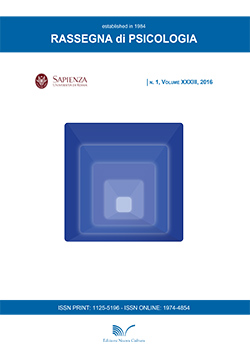Ethical Leaders and Leadership Effectiveness: The Moderating role of Individual Differences in Need for Cognitive Closure
DOI:
https://doi.org/10.13133/1974-4854/16644Keywords:
Leadership, Ethical leadership, Need for Cognitive Closure, UncertaintyAbstract
Ethical leadership is an important factor in leadership effectiveness, but the study of the contingencies of its influence is still in its infancy. Addressing this issue we focus on the moderating role of followers’ need for cognitive closure, the disposition to reduce uncertainty and swiftly reach closure in judgment and decision, in the relationship between ethical leadership and its effectiveness. We propose that need for closure captures followers’ sensitivity to the uncertaintyreducing influence of ethical leadership. In a field survey study we found support for the hypothesis that perceived ethical leadership has a stronger (positive) relationship with leadership effectiveness for followers higher in need for closure. This support is found across two indicators reflecting different aspects of leadership effectiveness: effort investment and job satisfaction. We discuss how these findings advance our understanding of the uncertainty-reducing role of ethical leadership.Downloads
Published
2016-12-10
Issue
Section
Articles
License
Copyright (c) 2016 Antonio Pierro, Giorgia Nevigato, Clara Amato, Daan van Knippenberg

This work is licensed under a Creative Commons Attribution 4.0 International License.

